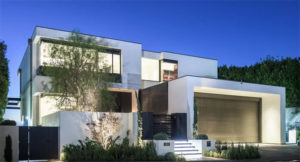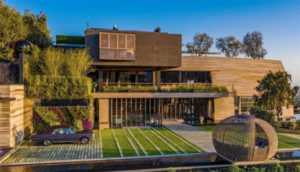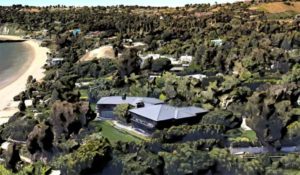Sometimes, it’s hard to wrap one’s head around the notion that November 2021 was just a year ago. At the time, large cap tech names like Meta and PayPal were roughly triple their current value and Bitcoin and Ethereum hit all-time highs.
And yes, SPACs were a very popular investment. Companies that took that route to market in 2020 and 2021, including Opendoor, Luminar, Fisker and Sonder Holdings, were stock market darlings for a while.
It was the kind of environment that apparently leads a startup founder to feel OK about dropping tens of millions on a Los Angeles mansion. And many, in fact, did just that.
Search less. Close more.
Grow your revenue with all-in-one prospecting solutions powered by the leader in private-company data.
It hasn’t worked out as planned. Last month, we reported on the Miami mansion of Bird founder Travis VanderZanden, which is now worth more than his stake in the one-time scooter unicorn. Turns out, he’s not the only one who bought high-priced homes in recent quarters expecting their net worth would be a lot higher today.
Below, in what we hope comes off as more a retrospective of a bygone-era than a pure exercise in schadenfreude, we look at some of the biggest mansion deals, and how buyers’ fortunes have turned. We’ve limited ourselves here to Los Angeles, which seemed to be a hot spot for tech riches-to-real-estate deals.
Did my SPAC open the door? (To a Bel Air mansion)
We’ll start with Eric Wu, co-founder and CEO of Opendoor, the real estate iBuyer platform that went public in a SPAC merger with a blank-check company led by “SPAC King” Chamath Palihapitiya.

Wu reportedly paid a whopping $32 million in April for an all-glass mansion in the Bel Air hills designed by famed architect Zoltan Pali. The 18,800-square-foot home, originally listed for $56 million, boasts “sweeping views of the Los Angeles Basin, unobstructed from the Getty Center to Long Beach, Century City, and Downtown.”
Since around the time the purchase closed, Opendoor shares have shed over two-thirds of their value. The company’s market cap is down over 90% from its 2021 peak. And its business model looks more suited to last year, when mortgage rates were half current levels and homes were selling fast.
Recent headlines haven’t been favorable. Last week, the company laid off 18% of its staff. In August, the Federal Trade Commission reported Opendoor has agreed to pay a settlement of $62 million over charges of misleading potential home sellers in its marketing campaigns. To make matters worse, the company is also reportedly selling homes it acquired at a loss.
Fisker house is not a fixer

Though it had been on shaky ground financially for many years, luxury electric-car maker Fisker finally made it to the public markets two years ago, courtesy of a SPAC merger. Shares peaked at over $28 in early 2021, giving the company a market cap of over $9 billion.
Husband-and-wife Henrik Fisker and Geeta Gupta-Fisker, who both hold large stakes in the company, went house shopping that year, spending $21.8 million for a Hollywood Hills mansion with views all the way to the Pacific Ocean.
While Los Angeles real estate has been holding up OK lately, the same can’t be said for Fisker shares. The stock is down around 70% from its peak.
Sonder CEO gets skyline views

Francis Davidson, CEO of Sonder, a provider of chic accommodations for short-term stays, reportedly paid $9.2 million early this year for a Hollywood Hills mansion formerly owned by prodigious Grammy winner Pharrell Williams.
But while the year started out well enough for the hospitality upstart, things have gone downhill. Sonder has shed roughly 80% of its value on Nasdaq after completing a SPAC merger in January.
Davidson reportedly sold $15 million worth of shares in January. It looks like his remaining reported stake is worth less than the price of the Hollywood house.
Luminar CEO was worth billions when he bought $83M house
Luminar, a developer of autonomous driving technology, made a splashy market debut in late 2020 and subsequently landed a market cap of more than $10 billion.

That was a lucrative time for Luminar’s 20-something founder and CEO, Austin Russell, who reportedly paid $83 million in the summer of 2021 for an 18-bedroom home in the Pacific Palisades enclave.
At the time, it was a very affordable home for Russell, whose stake was worth billions. He owned nearly a third of company shares when Luminar went public, according to a securities filing for the SPAC merger deal.
Now, with shares down over 75% from their 2020 peak, Russell is no longer a paper billionaire. Luminar’s current market cap — around $2.7 billion — however, is still high enough for him to afford some very nice digs.
And more…
As we started compiling giant LA mansion purchases, the list was getting quite long. In the interest of reasonable brevity, we’re listing some of the other deals below in short form:
- Bitcoin to Bel Air: In January, Coinbase CEO Brian Armstrong reportedly spent $133 million on a Bel Air compound said to rank as the fourth-priciest residential real estate deal ever inked in California. Since hitting its peak a year ago, Coinbase shares have lost 84% of their value.
- Figs founders got mansions: Heather Hasson and Trina Spear, the founders of health care apparel maker Figs, generated enormous paper wealth when their company went public in spring 2021. Hasson reportedly used some of the proceeds for a $57 million Brentwood estate, while Spear purchased a nearby home for $22 million. Shares of the company are now down 86% from their peak.
-

A16z’s Marc Andreessen paid $177 million for this Malibu estate. Photo: Google Earth via LA Times. Andreessen drops $255M in Malibu: When it comes to spending top dollar on Southern California real estate, no one can outdo the Andreessens. Marc Andreessen, the venture capitalist, and Laura Arrillaga-Andreessen, a philanthropy director, author and academic, spent $177 million last year on a Malibu estate that reportedly ranks as the priciest property ever sold in California. A few months later, they spent $44 million and $34 million, respectively, on two other nearby properties. The purchases were followed by some sharp declines of valuations in public companies with backing from Andreessen Horowitz, as we documented a few months ago. While market caps of specific companies on the list have shifted since, the overall narrative of a downward trajectory remains valid.
Illustration: Dom Guzman

Stay up to date with recent funding rounds, acquisitions, and more with the Crunchbase Daily.




![Illustration of a guy watering plants with a blocked hose - Global [Dom Guzman]](https://news.crunchbase.com/wp-content/uploads/quarterly-global-3-300x168.jpg)
67.1K Followers